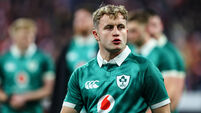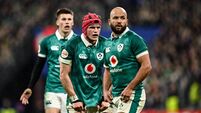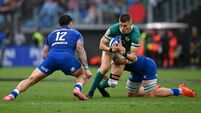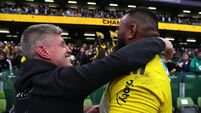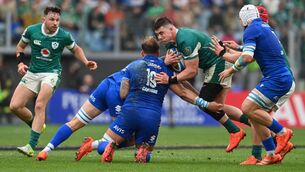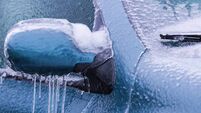Peter Jackson: France must be on their best behaviour when Irish come to town
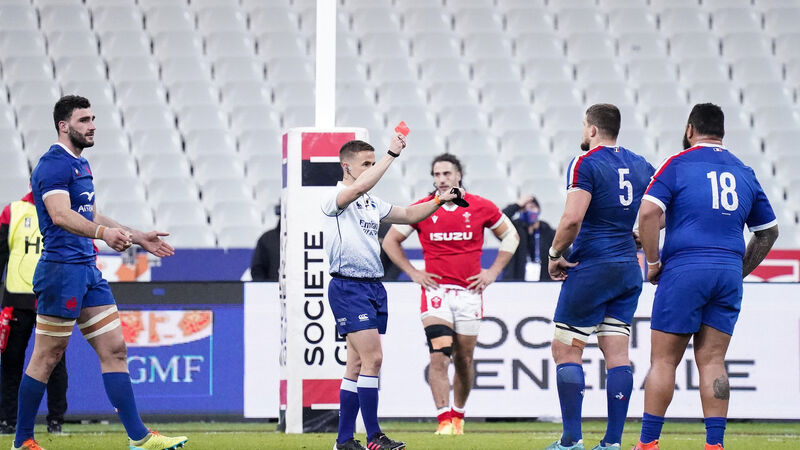
France's Paul Willemse is sent off by referee Luke Pearce during the 2021 Six Nations. Picture: INPHO/Dave Winter
Once they finish their forensic dissection of Ireland putting the champions out for the count, the French management will be tempted to call their friends at the Foreign Legion.
Since their pre-tournament visit to the Command Training and Hardening Centre on the Riviera in search of “in inspiring environment”, Les Bleus now realise they could do with some urgent advice on a subject close to the Legion’s heart, .


